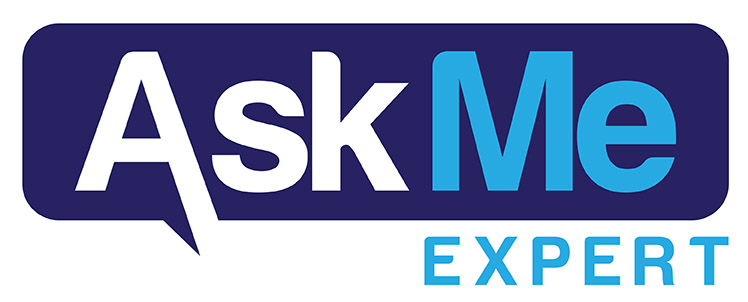![]()
Eating a balanced diet is essential as it helps improve your defense mechanism and fight off infections. Besides that, it keeps you strong, boosts your energy, and prevents health complications associated with the virus and treatment.
Below are five diet tips for people with HIV/AIDS.
1. Eat plenty of fruits and vegetables
A diet rich in fruits and vegetables is critical in combating HIV/AIDS. Fruits and vegetables are packed with essential elements such as vitamins, fiber, minerals, and antioxidants which help regulate bodily processes.
Vitamins such as vitamin C and E destroy free radicals and boost your immune system. Excellent sources of these vitamins include broccoli, spinach, orange, red pepper, nuts, and lemons.
Besides that, many fruits and vegetables are packed with antioxidants such as beta-carotene, which help reduce inflammation and improve immune function. Great sources of this powerful antioxidant include green leafy vegetables, carrots, and sweet potatoes.
Consuming fruits and vegetables rich in zinc improves your white blood cells count, thus supporting your body's natural immune response. Excellent sources include lentils, sesame seeds, pumpkin seeds, and nuts.
Selenium is another excellent mineral that improves your body's immune response. Nuts contain adequate amounts of selenium.
It is vital to ensure that fruits and vegetables fill half of your plate in every meal serving. By doing so, you will get adequate vitamins and minerals.
2. Eat lean and low-fat sources of protein
Proteins are essential components in any diet. They are critical building blocks, and every cell in the body contains proteins. A diet rich in proteins is vital in replenishing and maintaining the cells in your body. Proteins are essential in building body muscles and boosting your immune system. Besides that, proteins aid in digestion as half of the proteins you consume help synthesize enzymes that help in food digestion.
The doctor may recommend that you consume more proteins if you are in a later stage of HIV/AIDS. However, ensure you do not eat excess proteins; otherwise, you may develop other unwanted problems such as excessive weight gain or liver problems, to name a few. Good protein sources include fish, eggs, lean beef, poultry, and nuts.
3. Avoid high-sugar and junk foods
It is essential to ensure you eat the right kinds of foods when suffering from HIV/AIDS. That means any food that does more harm than good to your body should be avoided at all costs. Some foods to avoid include junk and sugary foods, as they tend to suppress your immune system and enhance inflammation.
Other than that, most junk foods are nutrient deficient, meaning they do not provide the body with the desired nutrients it requires during the healing process. Common sources of junk and sugary foods include pastries, soda, cake, chips, and candy. If you are craving sugary foods, ensure you snack on healthy foods such as a fruit smoothie.
Eating too much sugary and junk foods is associated with chronic diseases like obesity, type 2 diabetes, and heart disease. When suffering from HIV/AIDS, you are aware that your immune system is compromised; thus, consuming these foods makes you susceptible to developing these conditions.
4. Drink lots of fluids
Drinking lots of fluids is a great way to ensure you remain healthy and that your body functions optimally. When you are sick, you tend to lose a lot of water through sweating, diarrhea, or vomiting. Being dehydrated will also get you feeling sicker than you are. There are several benefits associated with keeping yourself hydrated when suffering from HIV/AIDS.
Hydration improves bodily processes such as digestion and absorption of nutrients which help to improve your overall health. Also, drinking plenty of fluids enhances the transport of nutrients and wastes, which helps prevent various health conditions.
It is worth noting that hydrating involves taking water and other fluids such as juices, beverages, and electrolyte-containing fluids. Hydrating will get you feeling good and enhance your healing process. It's crucial to avoid dehydration as severe dehydration may require you to be hospitalized.
5. Eat adequate whole grains
Whole grains are excellent sources of carbohydrates, and as you know, carbs are essential elements in a diet that provide your body with energy. Besides that, they are loaded with vitamins that have immune-boosting properties.
Whole grains are rich in fiber, which is good if you have HIV/AIDS. Consuming foods rich in fiber lowers your risk of contracting lipodystrophy, a potential side effect of HIV/AIDS. Other benefits of eating whole grains include improved bowel movement, enhanced growth of healthy bacteria in the colon. Also, eating whole grains reduces the risk of developing conditions such as some types of cancer, heart disease, obesity, and type 2 diabetes.
Good sources of whole grains include brown rice, oats, whole wheat bread, triticale, whole rye, sorghum, millet, buckwheat, whole-grain corn, quinoa, and barley.
Disclaimer: This article is for informational purposes only and is not intended to be a substitute for professional consultation or advice related to your health or finances. No reference to an identifiable individual or company is intended as an endorsement thereof. Some or all of this article may have been generated using artificial intelligence, and it may contain certain inaccuracies or unreliable information. Readers should not rely on this article for information and should consult with professionals for personal advice.
